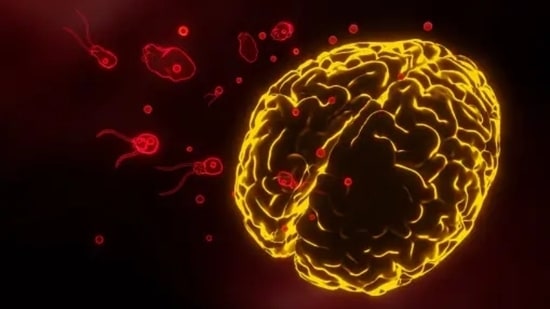Kerala has reported its fourth death caused by the rare brain-eating amoeba, scientifically known as Naegleria fowleri. These microorganisms thrive in warm freshwater environments such as lakes, rivers, and hot springs, entering the human body and severely affecting the brain. People are advised to avoid water activities to stay safe.
Primary Amoebic Meningoencephalitis (PAM) is a rare but often fatal infection caused by Naegleria fowleri. This microscopic amoeba thrives in stagnant warm freshwater, posing a significant health risk when contaminated water enters the nose and travels to the brain, leading to severe tissue damage and brain swelling.
Early Symptoms:
Early symptoms of PAM can be mistaken for common viral illnesses, making diagnosis difficult. Initial signs include headache, fever, nausea, and vomiting, which can be mild. As the infection progresses, severe symptoms such as stiff neck, confusion, seizures, hallucinations, and coma can occur. The disease advances rapidly, often resulting in death within days. Prompt medical attention is crucial, but even with treatment, the prognosis is typically poor.
How to Keep Children Safe:
Children are the most vulnerable group. To protect them, minimize their exposure to warm freshwater areas, keep their heads above water in thermal pools, ensure frequent and regular chlorination in pools, use proper covers and clips, and supervise them closely while playing in pools.
Things to Remember:
- PAM is extremely rare: Despite its severity, the infection is very uncommon.
- No risk from drinking contaminated water: Naegleria fowleri infection does not occur from drinking contaminated water or through person-to-person contact.
- No established cure: Currently, there is no definitive cure for PAM, and the infection is usually fatal.

 हिंदी
हिंदी






